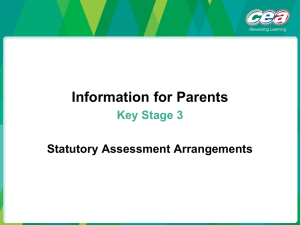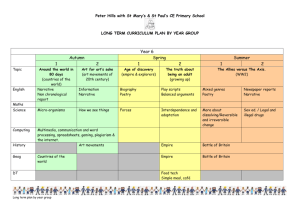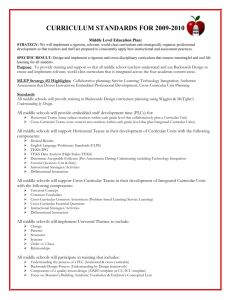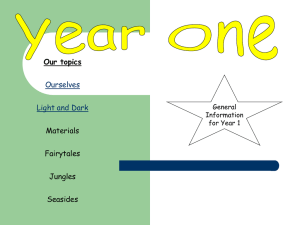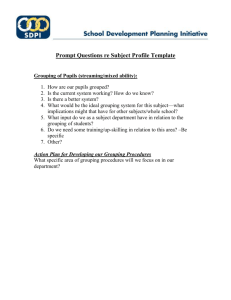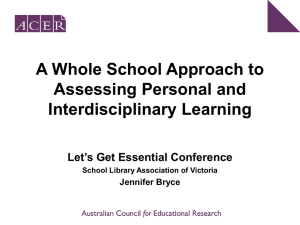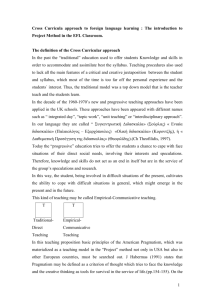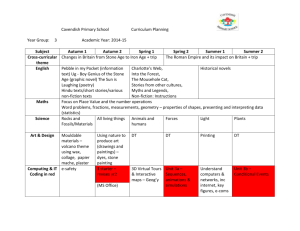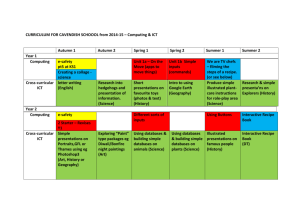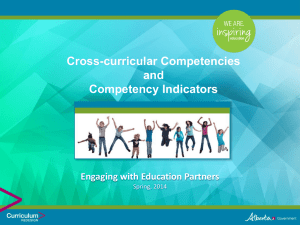Information for Parents on Statutory Assessment Arrangements
advertisement
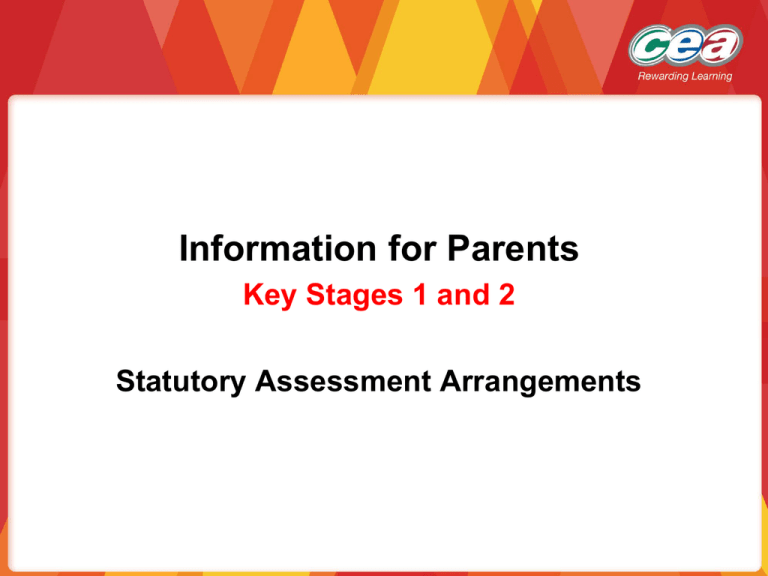
Information for Parents Key Stages 1 and 2 Statutory Assessment Arrangements The Curriculum and Learning The Northern Ireland Curriculum (Primary) includes: • Foundation Stage: • Key Stage 1: • Key Stage 2: Years 1 and 2 Years 3 and 4 Years 5, 6 and 7. It sets out: • Areas of Learning • Cross-Curricular Skills • Thinking Skills and Personal Capabilities. The Curriculum and Learning The six Areas of Learning are: • • • • • • Language and Literacy Mathematics and Numeracy The Arts The World Around Us Personal Development and Mutual Understanding Physical Education. The Curriculum and Learning Children engage in active learning contexts across all areas of the curriculum to develop: • Cross-Curricular Skills • Thinking Skills and Personal Capabilities. The Curriculum and Learning The three Cross-Curricular Skills are: • Communication • Talking and Listening • Reading • Writing • Using Mathematics • Using ICT. The Curriculum and Learning The Thinking Skills and Personal Capabilities are: Thinking Skills • Managing Information • Thinking, Problem-Solving and Decision-Making • Being Creative Personal Capabilities • Working with Others • Self-Management. Assessment To improve your child’s learning, we need to know: • what stage they are at in their learning • how well they are doing • how we can help them do better. Assessment Teachers will assess your child’s progress in different ways, for example: • • • • • • classroom observation discussion and asking questions classwork homework class tests assessment activities. Assessment Your child will be assessed each year in: • the Areas of Learning • the Thinking Skills and Personal Capabilities and • the Cross-Curricular Skills. Assessing the Cross-Curricular Skills In Years 3–7, schools must use the Levels of Progression for assessing and reporting pupils’ progress. In Year 4 and Year 7, the numerical level your child has achieved will be reported to you (not yet required for Using ICT). Assessment of the Cross-Curricular Skills The Levels of Progression: • apply to Communication, Using Mathematics and Using ICT • range from Level 1 to Level 5 in Key Stages 1 and 2 • describe what ‘pupils can’ do • indicate the knowledge, understanding and skills your child needs to demonstrate to achieve each level. See www.nicurriculum.org.uk Levels of Progression Reading Level 2 Assessment of the Cross-Curricular Skills Teachers assess your child’s progress in an ongoing way through: • classroom observation • discussion and asking questions • monitoring their work and progress. This helps them understand: • the level at which your child is working • how best to help your child improve their learning. End of Key Stage Assessment At the end of Key Stages 1 and 2, teachers will decide the level your child has achieved in each skill, based on: • their knowledge of your child • assessment information they have gathered and • your child’s performance in planned assessment activities/tasks. Range of Levels for the Cross-Curricular Skills The Levels through the Key Stages Key Stage 1 1 (Years 3–4) 2 (Years 5–7) 3 (Years 8–10) Levels of Progression 2 3 4 5 6 7 Expected Levels for the Cross-Curricular Skills Expected Levels at the End of Each Key Stage End of Key Stage 1 (Year 4) Level 2 End of Key Stage 2 (Year 7) End of Key Stage 3 (Year 10) Level 4 Level 5 Expected Levels for the Cross-Curricular Skills Expected Levels at the End of Each Key Stage End of Key Stage 1 (Year 4) End of Key Stage 2 (Year 7) End of Key Stage 3 (Year 10) Level 2 Level 4 Level 5 There is also: ‘a very clear expectation that individual pupils should progress at least one level between each Key Stage.’ (Department of Education, May 2010) Levels of Progression and Levels of Attainment Note The Levels of Progression replace Levels of Attainment. The new levels place greater emphasis on skills (not only knowledge and understanding) – so they are expected to be more challenging. Quality Assurance and Quality Control The Moderation Process This will involve: • teachers in each school working together to agree standards • schools providing samples of pupil work to CCEA for external moderation. Annual Reports The Annual Report will give you information about your child's progress in every aspect of the curriculum. In Years 1, 2, 3, 5 and 6 Annual Reports will include a comment only about progress in Communication, Using Mathematics and Using ICT. In Years 4 and 7 The Annual Report will include a numerical level and a teacher’s comment: • for Communication and Using Mathematics (from 2012/13) • for Using ICT (from a date to be decided). Annual Reports For pupils in Years 4 and 7 The Annual Report will tell you the percentage of pupils in your school who: • attained each level • attained the expected level or above • are working towards the expected level • are exempt from assessment.
